The SEO Dilemma: Organic vs Paid - Which is it?
When it comes to achieving success with SEO, there are several key factors to consider.
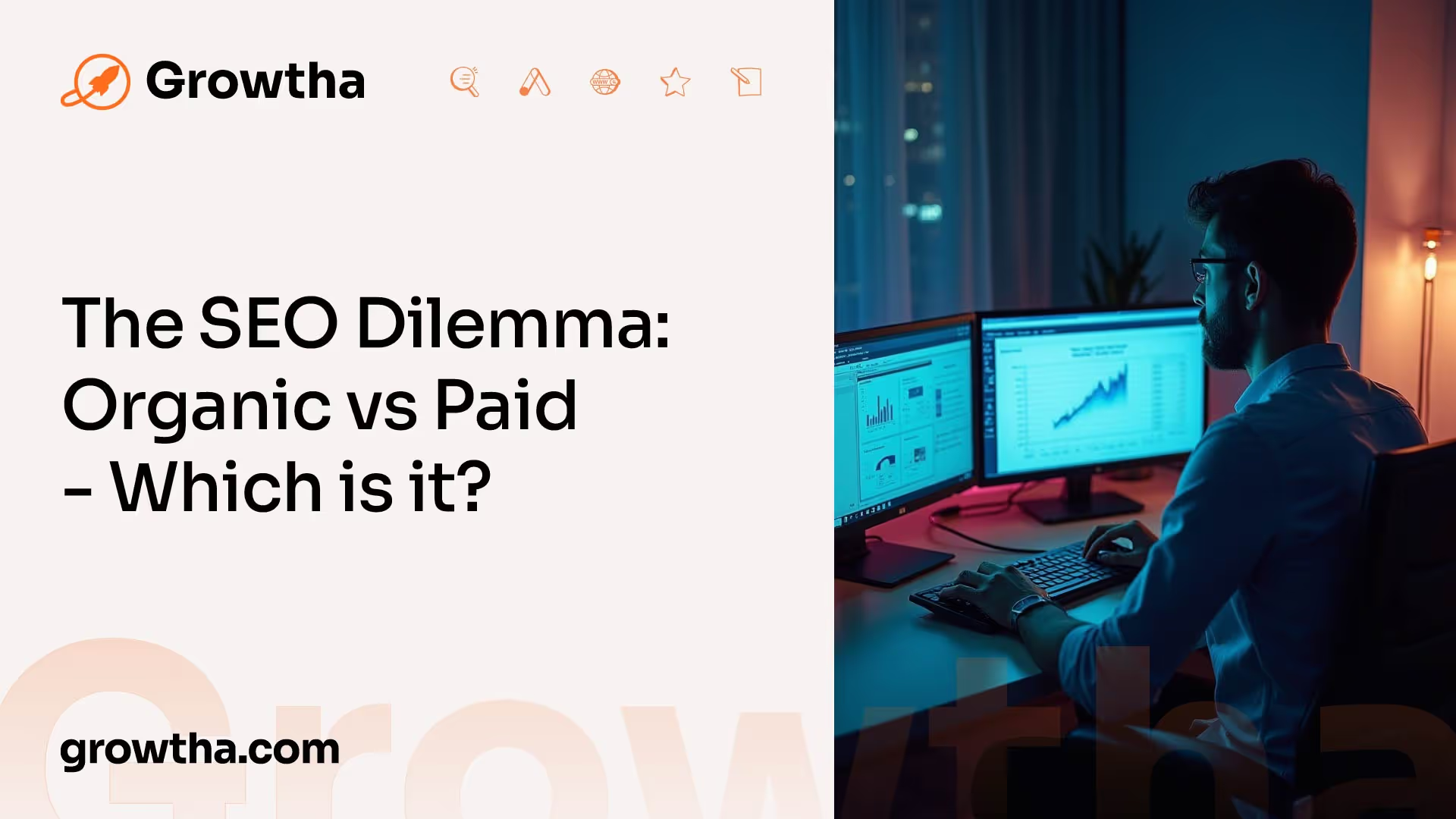

The SEO Dilemma: Organic vs Paid - Which is it?
Organic SEO
Organic SEO, also known as organic search engine optimization, is an online marketing strategy that focuses on improving website rankings in unpaid search results on search engines like Google or Bing. This approach involves various tactics, including keyword research, link building, content creation, and optimizing page load time, to gain higher placement in search results. The importance of organic SEO cannot be overstated, as it plays a significant role in driving relevant and valuable traffic to websites.
Definition and Importance
Organic SEO, as defined by WebFX, is an online marketing strategy designed to improve website rankings in unpaid search results. Unlike paid advertising, organic SEO focuses on optimizing websites to naturally rank higher in search engine results pages (SERPs). This means that organic traffic is earned rather than paid for.
The importance of organic SEO lies in its ability to capture a substantial portion of overall website traffic. According to WebFX, organic traffic captures more than 40% of revenue, and search engines deliver a close rate that is eight times higher than traditional marketing. This demonstrates the value of organic SEO as a marketing channel for driving revenue.
Benefits of Organic SEO
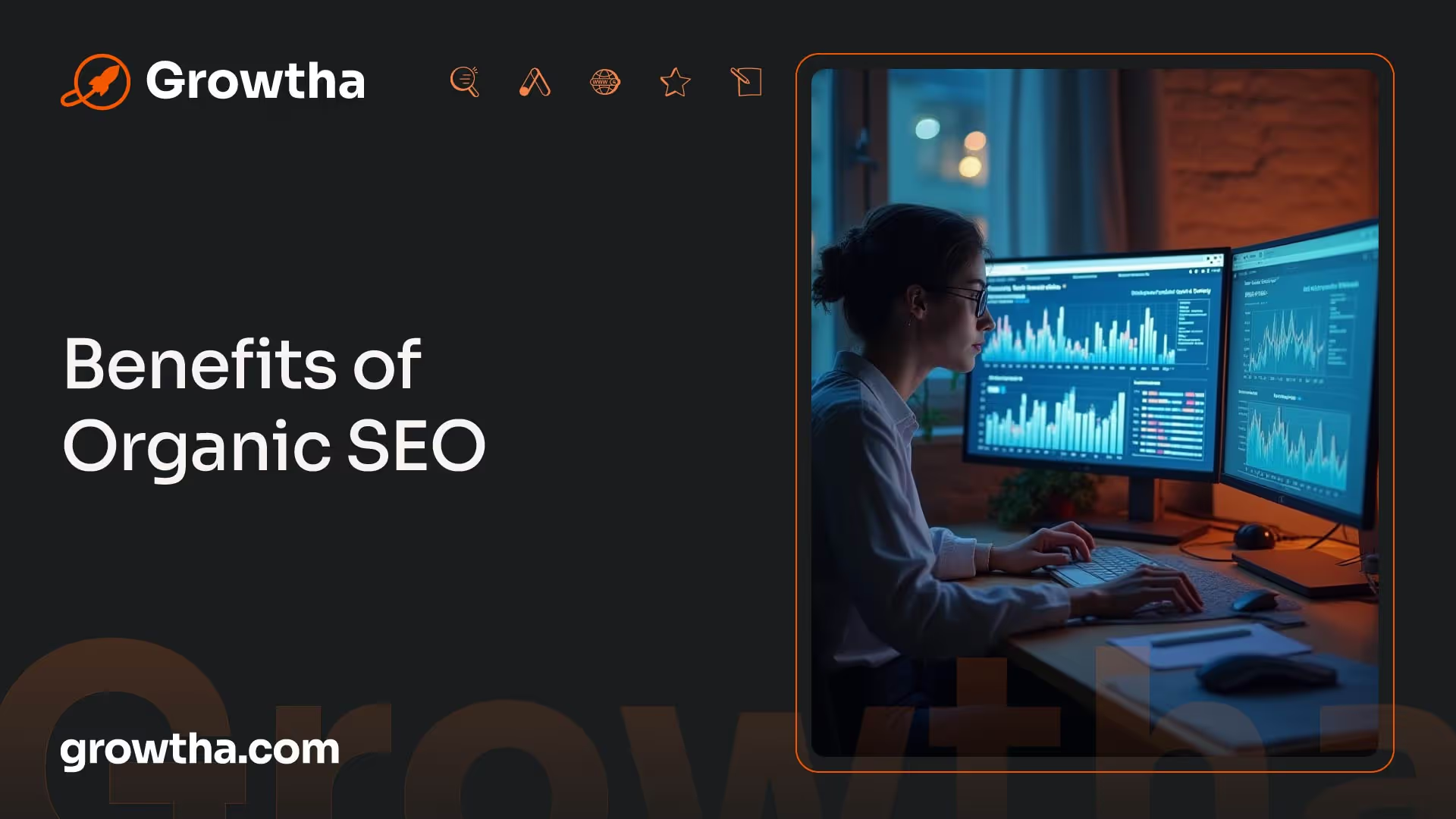
Organic SEO offers numerous benefits for websites and businesses striving to improve their online presence. Here are some key advantages of implementing organic SEO strategies:
- Cost-effectiveness: While organic SEO requires upfront investment in terms of time and resources, it is generally cheaper in the long run compared to paid search or pay-per-click (PPC) advertising. Once a website ranks highly in organic search results, it can attract free traffic, resulting in a predictable and cost-effective flow of visitors [1].
- Sustainability: Organic SEO delivers benefits that compound over time. By creating high-quality, shareable content, attracting natural backlinks, and generating industry buzz, companies can maximize the advantages of organic SEO for free [2]. This long-term approach ensures a sustainable source of organic traffic, reducing reliance on paid advertising.
- Credibility and Trust: Organic search results are perceived as more credible and trustworthy by users compared to paid advertisements. Websites that rank highly organically are considered authoritative and reliable sources of information. This trust factor can positively impact user engagement, brand perception, and conversion rates.
- Increased Visibility: Investing in organic SEO helps websites improve their visibility in search engine results pages (SERPs). Higher rankings mean increased exposure to potential visitors, resulting in more organic traffic. By optimizing various aspects of a website, such as keyword targeting and content quality, organic SEO can help businesses reach their target audience effectively.
Understanding the benefits of organic SEO sets the stage for implementing effective strategies to improve website rankings and attract relevant organic traffic. In the following sections, we will explore specific organic SEO strategies, as well as the key differences between organic and paid search.
Organic SEO Strategies
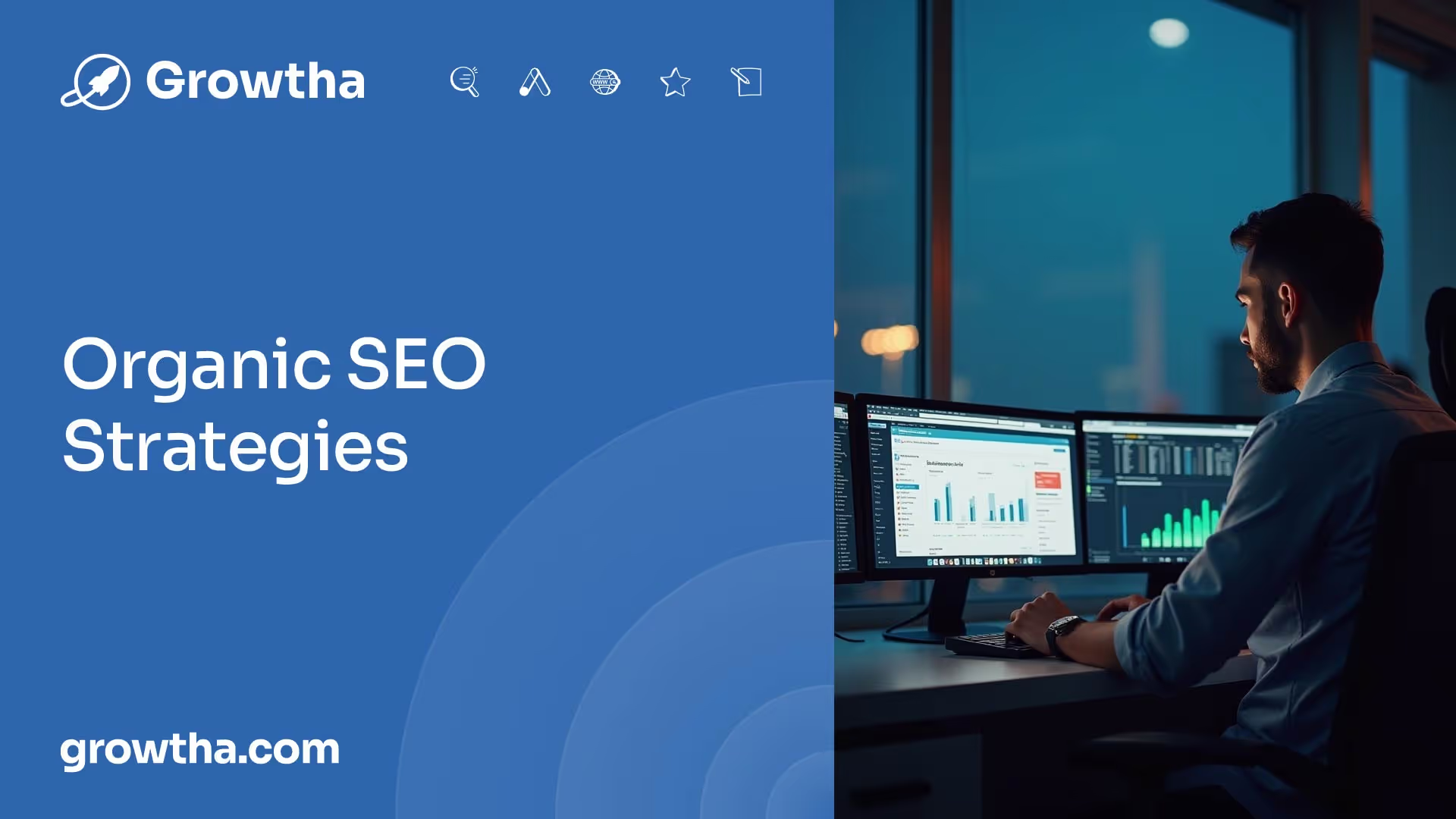
When it comes to organic SEO, several strategies can be employed to improve website rankings and increase visibility in unpaid search results. These strategies include keyword research, link building, and content optimization.
Keyword Research
Keyword research is a fundamental aspect of organic SEO. It involves identifying the words and phrases that potential visitors may use when searching for relevant information or services. By understanding these keywords, website owners can optimize their content to align with user intent and improve their chances of appearing in search results.
Effective keyword research involves analyzing search volume, competition, and relevance. Tools such as Google Keyword Planner, SEMrush, or Moz Keyword Explorer can assist in identifying popular keywords and their variations.
Link Building
Link building is a crucial strategy for improving organic search rankings. It involves acquiring backlinks from other reputable websites, signaling to search engines that your site is trustworthy and valuable. Backlinks act as votes of confidence and can significantly impact search engine rankings.
There are various link building tactics to employ, including developing content partnerships, publishing original research, and engaging in broken link building or unlinked brand mentions. These strategies help to acquire new links, expand reach, and enhance site authority, ultimately improving organic search rankings.
Content Optimization
Content optimization plays a pivotal role in organic SEO success. Creating high-quality, relevant, and engaging content is key to attracting interest and encouraging visitors to share and link back to your website. Google rewards content virality heavily in its rankings algorithm.
To optimize content, it's important to focus on keyword integration, ensuring that keywords are strategically placed within the content without sacrificing readability. Additionally, optimizing the meta tags, headings, and image alt tags can further enhance the visibility of the content in search results.
By employing these organic SEO strategies - keyword research, link building, and content optimization - website owners can increase their chances of achieving higher rankings in organic search results. However, it's important to note that organic SEO is a long-term strategy that requires ongoing effort and continuous improvement to maintain and improve search engine visibility.
Paid Search (PPC)
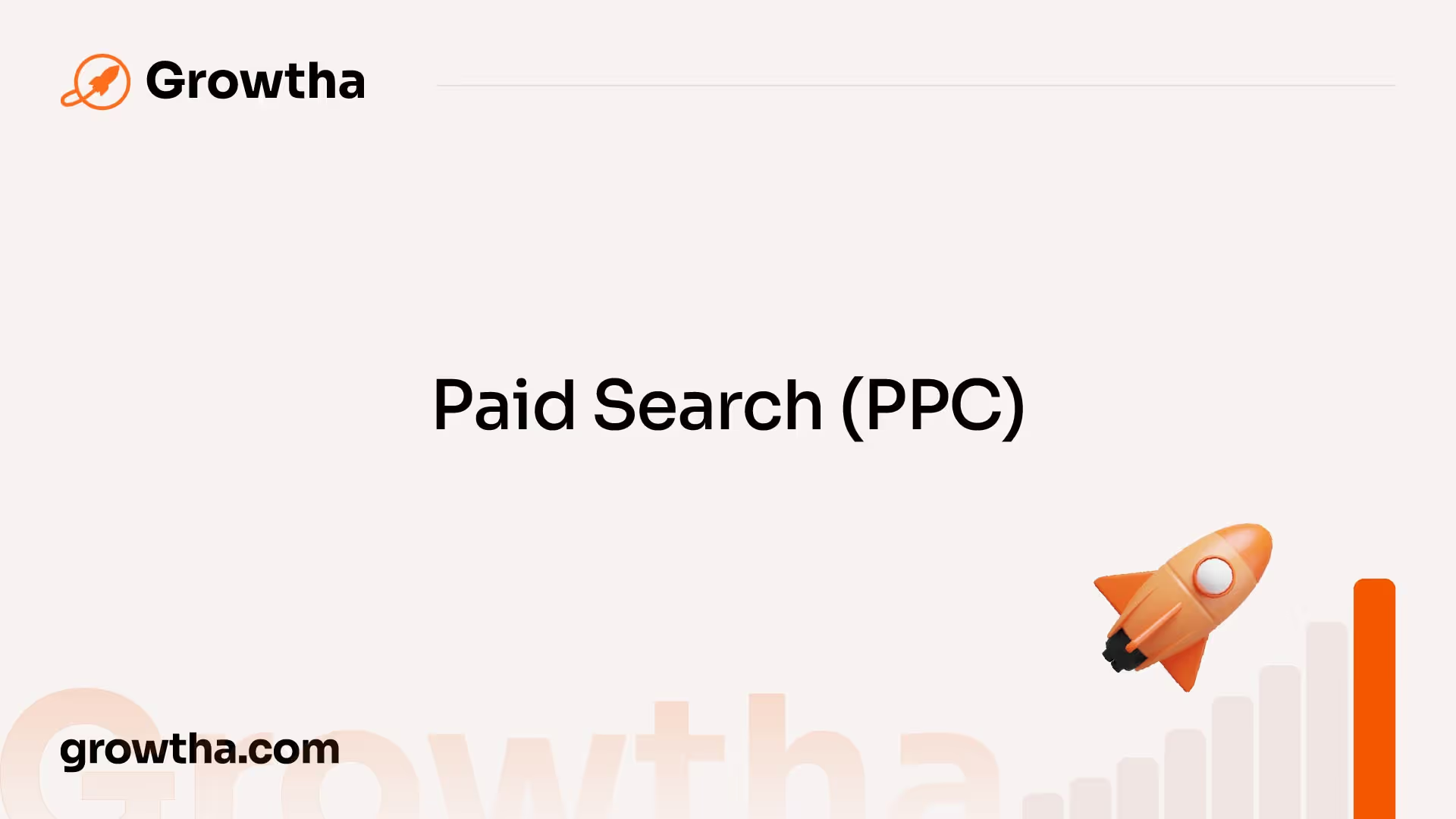
When it comes to search engine optimization (SEO), there are two main strategies to consider: organic SEO and paid search, also known as Pay-Per-Click (PPC) advertising. In this section, we will explore the overview of paid search and the benefits it offers.
Overview of Paid Search
Paid search involves businesses paying a small fee each time someone clicks on their ad, allowing them to secure top spots on search engine results pages [3]. One popular platform for paid search is Google Ads, where businesses bid on relevant keywords to display their ads in search results.
Paid search results are typically displayed at the top of the search engine results page, marked as "Ad" or "Sponsored." These ads are designed to attract immediate attention from users seeking specific products or services. By targeting keywords relevant to their business, companies can increase their visibility and potentially show their ads on the first page of Google [4].
One advantage of paid search is its ability to generate instant results. As soon as the ads go live, businesses can start receiving traffic and potential customers. This quick turnaround time can be especially beneficial for time-sensitive promotions or new product launches. Additionally, paid search allows businesses to reach a highly targeted audience with transactional intent, as users who click on these ads are often ready to make a purchase [2].
Benefits of Paid Search
Paid search offers several benefits that can help businesses achieve their marketing goals:
- Increased visibility: By appearing at the top of search engine results pages, paid search ads provide increased visibility for businesses, allowing them to stand out from competitors.
- Immediate results: Unlike organic SEO, which can take time to gain traction, paid search generates instant results. As soon as the ads are live, businesses can start driving traffic to their website and potentially see an increase in conversions.
- Targeted advertising: Paid search allows businesses to target specific keywords and demographics, ensuring that their ads reach the most relevant audience. This targeted approach can lead to higher click-through rates and better return on investment (ROI).
- Flexibility and control: With paid search, businesses have full control over their ad campaigns. They can set daily budgets, adjust bids for keywords, and make changes to ad copy to optimize performance.
- Trackable metrics: Paid search platforms provide detailed analytics and metrics, allowing businesses to track the performance of their ads. This data can help them make data-driven decisions, refine their targeting, and improve their overall marketing strategy.
It's important to note that the effectiveness of paid search can vary across different industries. For example, the click-through rate for paid Google ads in the technology industry is relatively low compared to other sectors [3]. Therefore, businesses should carefully analyze their target audience and industry trends to determine the suitability and potential ROI of paid search for their specific needs.
Paid search can be a valuable addition to a comprehensive marketing strategy, providing businesses with immediate visibility and the potential to drive targeted traffic to their website. However, it's essential to monitor ad bids, costs, and performance to ensure a positive ROI and make the most out of paid search opportunities.
Organic vs. Paid Search
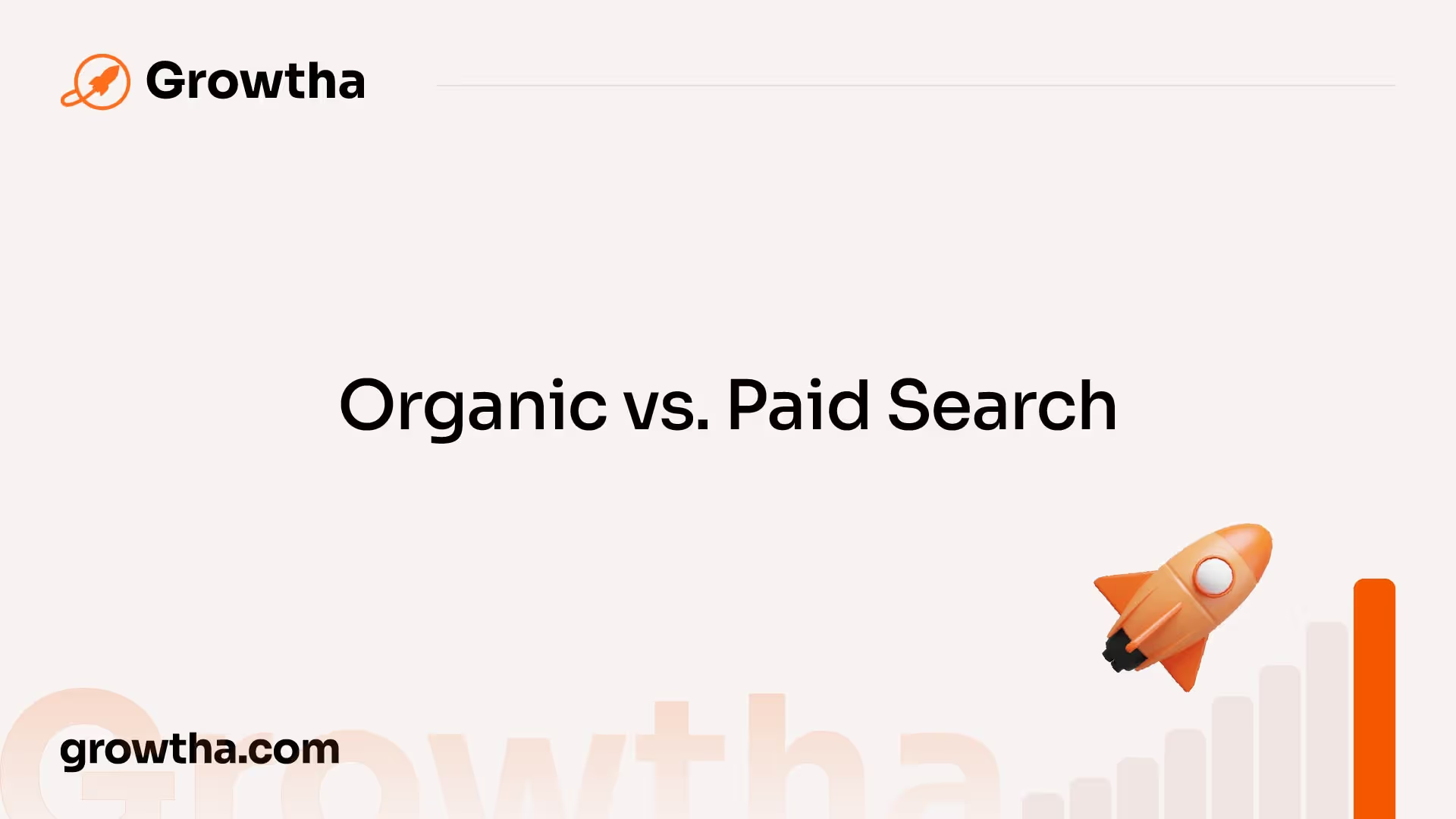
When it comes to search engine optimization (SEO), two primary strategies come into play: organic search and paid search. While both aim to improve a website's visibility on search engine result pages (SERPs), there are key differences between these approaches.
Key Differences
Organic search refers to the natural, non-paid search results that appear on search engine result pages. These results are determined by complex algorithms that assess the relevance and quality of website content to the user's search query. Organic SEO focuses on optimizing a website's structure, content, and overall online presence to improve its organic search rankings.
On the other hand, paid search, also known as pay-per-click (PPC), involves paid advertisements that appear alongside or above the organic search results. Advertisers bid on specific keywords, and their ads are displayed when users search for those keywords. Advertisers pay a small fee each time someone clicks on their ad. Paid search offers immediate visibility on search engines and can be an effective strategy for businesses looking to quickly increase their online presence.

When to Use Each Strategy
Determining whether to focus on organic search or paid search depends on various factors, including your specific goals and budget.
Organic search is a long-term strategy that requires consistent effort and patience. It is ideal for businesses looking to establish a strong online presence over time, build brand authority, and generate sustainable organic traffic. Organic SEO is particularly effective for businesses with limited budgets or those aiming for a high return on investment (ROI) in the long run.
Paid search, on the other hand, offers immediate visibility and can be advantageous for businesses seeking quick results or promoting time-sensitive offers. It is particularly useful for businesses looking to target specific keywords, attract ready-to-buy users, and generate immediate results and revenue. Paid search is recommended for businesses with larger budgets and the ability to closely monitor ad bids and costs to ensure a favorable ROI.
Ultimately, the best approach may involve a combination of both organic and paid search strategies. By leveraging the strengths of each strategy, businesses can maximize their online visibility, drive targeted traffic, and achieve their desired goals.
Remember, the decision between organic and paid search should be based on your unique business needs, goals, and available resources. It's essential to continuously monitor and adapt your SEO strategy to ensure optimal results and stay ahead of the competition.
SEO Success Factors
When it comes to achieving success with SEO, there are several key factors to consider. These factors play a crucial role in improving your organic search rankings and driving valuable traffic to your website. In this section, we will explore three important SEO success factors: website optimization, content quality, and backlink building.
Website Optimization
Website optimization is a fundamental aspect of SEO. It involves making strategic changes to your website to ensure that it is search engine friendly and provides a positive user experience. Some key aspects of website optimization include:
- Technical SEO: This involves optimizing the technical aspects of your website, such as site speed, mobile responsiveness, URL structure, and XML sitemaps. Ensuring that your website is technically sound helps search engines crawl and index your pages effectively.
- On-Page SEO: On-page SEO focuses on optimizing individual web pages to improve their visibility in search engine results. This includes optimizing meta tags, headings, URL structure, and incorporating relevant keywords naturally throughout your content.
- User Experience (UX): Providing a positive user experience is crucial for both search engines and website visitors. Optimizing your website's design, navigation, and accessibility helps visitors find information easily and encourages them to stay longer on your site, reducing bounce rates.
By optimizing your website for search engines and users alike, you lay a strong foundation for improving your organic search rankings.
Content Quality
Content quality is a major determinant of organic search rankings. Search engines, especially Google, value high-quality content that attracts interest and compels visitors to share and link back to it. This is because Google's algorithm rewards content virality in its rankings algorithm [5].
To create content that resonates with both search engines and users, consider the following:
- Relevance: Ensure that your content is relevant to the search queries of your target audience. Conduct thorough keyword research to understand what topics and keywords are relevant to your industry.
- Value: Provide valuable and informative content that satisfies the intent of the user's search query. Answer questions, provide insights, and offer unique perspectives to establish your website as a trusted resource.
- Engagement: Encourage user engagement by creating content that is engaging, visually appealing, and easy to read. Incorporate multimedia elements such as images, videos, and infographics to enhance the user experience.
- Freshness: Regularly update and refresh your content to ensure its relevance and recency. Google values the freshness of content, so updating old posts that are losing traffic and making significant changes to ensure relevance is crucial for SEO success [5].
By focusing on creating high-quality content that satisfies user intent, you increase the chances of attracting organic traffic and improving your search rankings.
Backlink Building
Building a strong backlink profile is an essential component of organic SEO. Backlinks are links from other websites that point to your site. They act as votes of confidence in the eyes of search engines, indicating that your website is reputable and trustworthy.
To build backlinks effectively, consider the following strategies:
- Link Building: Develop a link building strategy to acquire new links from reputable websites in your industry. This can be achieved through tactics such as guest blogging, influencer outreach, and participating in industry forums or discussions.
- Content Partnerships: Collaborate with other websites or influencers to create and promote valuable content together. This can help expand your reach, attract new audiences, and acquire backlinks from relevant sources.
- Original Research: Conducting and publishing original research can attract attention and generate backlinks from other websites looking to reference or cite your findings. This positions your website as a reliable source of information in your industry.
Building a strong backlink profile takes time and effort, but it is essential for enhancing your website's authority and improving your organic search rankings.
By focusing on website optimization, content quality, and backlink building, you increase your chances of achieving SEO success and driving valuable organic traffic to your website. Implementing these strategies diligently and staying up-to-date with SEO best practices will help you establish a strong online presence and reach your target audience effectively.
Long-Term SEO Strategy
When it comes to search engine optimization (SEO), taking a long-term approach is crucial for sustainable online growth. A long-term SEO strategy focuses on adapting to changes, building domain authority, and sustainable content development. By investing in a long-term SEO strategy, businesses can stay ahead of the competition, establish a holistic online presence, and experience compounding returns.
Building Domain Authority
Building domain authority is a key aspect of a long-term SEO strategy. Domain authority refers to the credibility and trustworthiness of a website in the eyes of search engines. Websites with higher domain authority are more likely to rank higher in search engine results, attracting more organic traffic.
To build domain authority, businesses should focus on:
- Quality Backlinks: Acquiring high-quality backlinks from reputable websites can significantly boost domain authority. These backlinks act as a vote of confidence, indicating to search engines that the website is trustworthy and relevant.
- Content Marketing: Creating valuable and informative content that attracts backlinks naturally can help improve domain authority. By consistently publishing high-quality content, businesses can position themselves as industry leaders and attract authoritative backlinks.
- Social Signals: Engaging with the audience through social media platforms and encouraging social sharing of content can indirectly contribute to domain authority. Increased social signals, such as likes, shares, and comments, can enhance the website's credibility in the eyes of search engines.
Sustainable Content Development
Content development plays a pivotal role in long-term SEO success. By consistently creating high-quality and relevant content, businesses can attract organic traffic, engage with their audience, and establish themselves as authoritative sources in their industry.
To ensure sustainable content development, businesses should consider:
- Keyword Research: Conducting thorough keyword research helps identify the topics and search terms that are relevant to the target audience. By incorporating these keywords strategically into the content, businesses can increase their visibility in search engine results.
- Content Audit: Regularly auditing existing content helps identify gaps, update outdated information, and optimize underperforming content. By keeping the content fresh and relevant, businesses can maintain their search engine rankings and attract new organic traffic.
- Competitor Analysis: Analyzing competitors' content can provide insights into their strategies and identify opportunities for improvement. By understanding what works well for competitors, businesses can refine their own content development approach.
- Site Health Audit: Regularly assessing the technical aspects of a website, such as page load speed, mobile-friendliness, and crawlability, is essential for sustainable content development. A well-optimized website improves user experience, increases visibility in search engine results, and enhances overall SEO performance.
By prioritizing long-term SEO strategies, businesses can experience significant organic traffic growth over time. According to a study conducted between 2015 and 2023, clients saw an average upsurge of 220% in organic website traffic over a span of 6 to 24 months [6]. By establishing a strong foundation, adapting to market and algorithm changes, and consistently investing in SEO efforts, businesses can achieve sustainable online growth and drive long-term success.
References
[1]: https://blog.hubspot.com/marketing/tabid/6307/bid/1514/paid-search-vs-organic-search.aspx
[2]: https://www.webfx.com/seo/learn/organic-search-vs-paid-search/
[3]: https://elkhq.com/blog/organic-search-vs-paid-search
[4]: https://www.lairedigital.com/blog/organic-search-vs-paid-search
[5]: https://www.invoca.com/blog/improve-organic-search-rankings-google
[6]: https://seoplus.com/case-studies/why-your-long-term-seo-strategy-matters/







